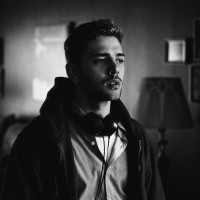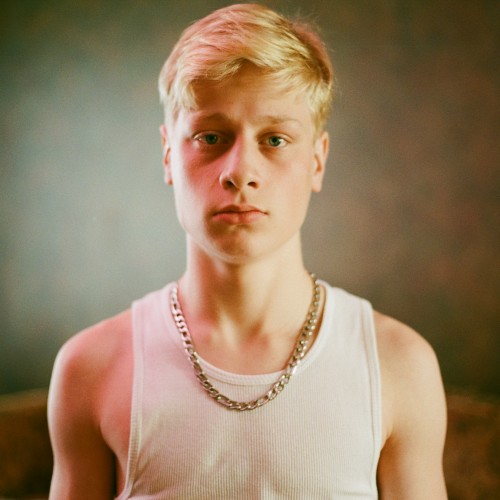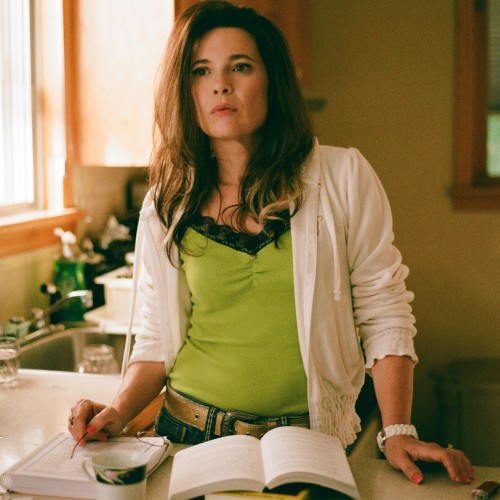Xavier Dolan and the Making of “Mommy”
The words “prodigy” and “wunderkind” have often been used to describe filmmaker Xavier Dolan, with good reason. Not yet 26, the French-Canadian auteur has recently released his fifth feature, Mommy, to general acclaim, including a Jury Prize win at the 2014 Cannes Film Festival. A sort of bookend to his first film, 2009’s J’ai tué ma mère (I Killed My Mother), Mommy stars Dolan regular Anne Dorval as Diane, the desperate mother of violence-prone, ADHD-addled Steve (a very believable Antoine Olivier Pilon). Their raucous, codependent relationship is tempered by the arrival of a quiet, secretive neighbor, played by Suzanne Clément (in a complete departure from her outgoing persona in Dolan’s 2012 Laurence Anyways). As each of the characters in this unsettling, emotional film struggles with personal demons, they form an unusual bond.
Contrary to his previous films I Killed My Mother, Heartbeats (2010) and Tom at the Farm (2013), Dolan — an actor since toddlerhood — did not cast himself in Mommy. Like most of his movies, Mommy features complicated mother-son dynamics, arresting visual sequences and a potent soundtrack. In just five years, the filmmaker has created a distinctly unique body of work, all the more remarkable considering his relative youth.
Recently I sat down with a few other journalists for a conversation with Dolan, who was both introspective and forthright. The following are excerpts.
Do you feel different now that you’ve received all this acclaim? Maybe you can no longer be insecure…?
I was never insecure; I am passionate about what I do. I love working with actors and I love acting and writing these stories and nothing has ever made me feel insecure. Some reviews have hurt me, but they’ve always been educational at the very least.
What inspired you to include the introduction about a fictional healthcare law [allowing parents to bypass the courts and have their difficult children committed]?
When we started scouting locations for the film we went to a correctional facility and the principal who took us through the place told me that the first scene didn’t make sense, because the movie starts with Steve being expelled because he’s misbehaved, which a correctional center would never do. I realized that I had a choice to make between telling a story that was rigorous in terms of research, or just the story I wanted to tell, which was the story of mother love and friendship. Had I not opted for that, I would have had to incorporate social workers, police officers, court scenes. It’s not a documentary.
Also, I thought that this law would create and elicit a natural moral dilemma, because of course a mother would say she’d never never drop her child, but I personally have friends with a child with a behavioral disorder or mentally ill, and they told me that what was most heart-wrenching for them was when Diane drops Steve at the hospital. They said, “It’s awful to say, but I often think about that, and I see myself doing that.” Hearing that from a mother made me think there’s got to be a choice because when you can’t do something because it is illegal, of course you tell everyone, “I would never do that.” But when it’s possible, it’s another conversation.
Could you talk about the process of casting Antoine as Steve?
It was a process of one second and a half. We shot this short (College Boy) where his character was a bullied kid, which is pretty much the opposite of what he is in Mommy. It was not in his performance but in his attitude on the set; he was such a professional young man and he was so kind and listening. (Somehow he wasn’t exactly that way on Mommy; he was definitely more rambunctious. We had this complicity so he had more familiarity, which was great.) So the process of casting him was just believing that we could do it together and that he could listen to my directions and that he would bring that character to life, which he did.
Compared to some of your other films, this was a bit more adrenalized, faster paced. Was that a reflection of the film itself or a process in you yourself?
I think it’s probably more about the story and the script. A lot of people have said that Laurence was long, but Laurence is a movie that would have felt twice as long if it was 25 minutes shorter. It needed to span that much time because the story itself spanned so many years. There’s nothing worse for me than trying to tell a long story in a really short way, in a skit-like fashion where it becomes anecdotal and you can never have any pace because you’re always jumping and in motion. But Mommy was about the hysterical rhythm of these peoples’ lives, so the film mirrored that.
Anne and Suzanne both acted in your previous films. How has your working relationship evolved?
There’s two ways of looking at it: I’ve learned more about acting. In Laurence Anyways, I wasn’t acting, so I literally spent a year — 75 days of shooting, a very long shoot — watching actors, watching their strengths, their weaknesses, learning about how they work and think. In Tom on the Farm I tried to apply these things to my own craft. Mommy was number five; by then I’d learned enough that my experience with Anne was completely different from I Killed My Mother. What also changed was that in these years, I’ve grown closer to both women, and I know them in their intimacy, their private lives, how they laugh and how they cry; who they are. What’s fun about this is not only to write characters as far away and different from what they’ve done in their careers, but also as different as can be from who they are in their lives.
One thing that’s consistent in your films is that your characters seem to be stepping out of a cocoon of one kind of another.
They’re about characters breaking free, breaking the rules, but also trying to fit in society and being ostracized by that society because they are different. It’s always the same theme coming back.
Upcoming projects?
I think that within the next two years, I’ll be working on my own movies as a director. There might be a project from a script I’ve not produced, but I really need to act. If I want to keep having a healthy relationship with actors, I need to act myself, because I give a lot of my time and energy to writing dialogue for actors and finding costumes for actors, and directing actors, working with actors, filming actors, doing CGI for actors. At a certain point I need to act too.
Mommy is playing at Landmark Sunshine Cinema and Elinor Bunin Munroe Film Center (Lincoln Center).
—Marina Zogbi




